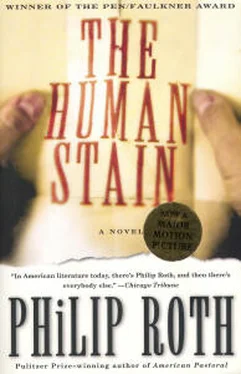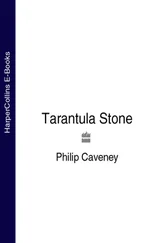Of course he wept at the funeral and knew how colossal this thing was that, without warning, had been taken away. When the minister read, along with the biblical stuff, a selection from Julius Caesar out of his father's cherished volume of Shakespeare's plays — the oversized book with the floppy leather binding that, when Coleman was a small boy, always reminded him of a cocker spaniel — the son felt his father's majesty as never before: the grandeur of both his rise and his fall, the grandeur that, as a college freshman away for barely a month from the tiny enclosure of his East Orange home, Coleman had begun faintly to discern for what it was.
Cowards die many times before their deaths;
The valiant never taste of death but once.
Of all the wonders that I yet have heard,
It seems to me most strange that men should fear;
Seeing that death, a necessary end,
Will come when it will come.
The word “valiant,” as the preacher intoned it, stripped away Coleman's manly effort at sober, stoical self-control and laid bare a child's longing for that man closest to him that he'd never see again, the mammoth, secretly suffering father who talked so easily, so sweepingly, who with just his powers of speech had inadvertently taught Coleman to want to be stupendous. Coleman wept with the most fundamental and copious of all emotions, reduced helplessly to everything he could not bear. As an adolescent complaining about his father to his friends, he would characterize him with far more scorn than he felt or had the capacity to feel — pretending to an impersonal way of judging his own father was one more method he'd devised to invent and claim impregnability. But to be no longer circumscribed and defined by his father was like finding that all the clocks wherever he looked had stopped, and all the watches, and that there was no way of knowing what time it was. Down to the day he arrived in Washington and entered Howard, it was, like it or not, his father who had been making up Coleman's story for him; now he would have to make it up himself, and the prospect was terrifying. And then it wasn't. Three terrible, terrifying days passed, a terrible week, two terrible weeks, until, out of nowhere, it was exhilarating.
“What can be avoided / Whose end is purposed by the mighty gods?” Lines also from Julius Caesar, quoted to him by his father, and yet only with his father in the grave did Coleman at last bother to hear them — and when he did, instantaneously to aggrandize them. This had been purposed by the mighty gods! Silky's freedom. The raw I. All the subtlety of being Silky Silk.
At Howard he'd discovered that he wasn't just a nigger to Washington, D.C.—as if that shock weren't strong enough, he discovered at Howard that he was a Negro as well. A Howard Negro at that. Overnight the raw I was part of a we with all of the we's overbearing solidity, and he didn't want anything to do with it or with the next oppressive we that came along either. You finally leave home, the Ur of we, and you find another we? Another place that's just like that, the substitute for that? Growing up in East Orange, he was of course a Negro, very much of their small community of five thousand or so, but boxing, running, studying, at everything he did concentrating and succeeding, roaming around on his own all over the Oranges and, with or without Doc Chizner, down across the Newark line, he was, without thinking about it, everything else as well. He was Coleman, the greatest of the great pioneers of the I.
Then he went off to Washington and, in the first month, he was a nigger and nothing else and he was a Negro and nothing else. No. No. He saw the fate awaiting him, and he wasn't having it. Grasped it intuitively and recoiled spontaneously. You can't let the big they impose its bigotry on you any more than you can let the little they become a we and impose its ethics on you. Not the tyranny of the we and its we-talk and everything that the we wants to pile on your head. Never for him the tyranny of the we that is dying to suck you in, the coercive, inclusive, historical, inescapable moral we with its insidious E pluribus unum. Neither the they of Woolworth's nor the we of Howard. Instead the raw I with all its agility. Self-discovery— that was the punch to the labonz. Singularity. The passionate struggle for singularity. The singular animal. The sliding relationship with everything. Not static but sliding. Self-knowledge but concealed. What is as powerful as that?
“Beware the ides of March.” Bullshit — beware nothing. Free. With both bulwarks gone — the big brother overseas and the father dead — he is repowered and free to be whatever he wants, free to pursue the hugest aim, the confidence right in his bones to be his particular I. Free on a scale unimaginable to his father. As free as his father had been unfree. Free now not only of his father but of all that his father had ever had to endure. The impositions. The humiliations. The obstructions. The wound and the pain and the posturing and the shame — all the inward agonies of failure and defeat. Free instead on the big stage. Free to go ahead and be stupendous. Free to enact the boundless, self-defining drama of the pronouns we, they, and I.
The war was still on, and unless it ended overnight he was going to be drafted anyway. If Walt was in Italy fighting Hitler, why shouldn't he fight the bastard too? It was October of 1944, and he was still a month shy of being eighteen. But he could easily lie about his age — to move his birth date back by a month, from November 12 to October 12, was no problem at all. And dealing as he was with his mother's grief — and with her shock at his quitting college — it didn't immediately occur to him that, if he chose to, he could lie about his race as well. He could play his skin however he wanted, color himself just as he chose. No, that did not dawn on him until he was seated in the federal building in Newark and had all the navy enlistment forms spread out in front of him and, before filling them out, and carefully, with the same meticulous scrutiny that he'd studied for his high school exams — as though whatever he was doing, large or small, was, for however long he concentrated on it, the most important thing in the world — began to read them through. And even then it didn't occur to him. It occurred first to his heart, which began banging away like the heart of someone on the brink of committing his first great crime.
In '46, when Coleman came out of the service, Ernestine was already enrolled in the elementary education program at Montclair State Teachers College, Walt was at Montclair State finishing up, and both of them were living at home with their widowed mother. But Coleman, determined to live by himself, on his own, was across the river in New York, enrolled at NYU. He wanted to live in Greenwich Village far more than to go to NYU, wanted to be a poet or a playwright far more than to study for a degree, but the best way he could think to pursue his goals without having to get a job to support himself was by cashing in on the GI Bill. The problem was that as soon as he started taking classes, he wound up getting As, getting interested, and by the end of his first two years he was on the track for Phi Beta Kappa and a summa cum laude degree in classics. His quick mind and prodigious memory and classroom fluency made his performance at school as outstanding as it had always been, with the result that what he had come to New York wanting most was displaced by his success at what everybody else thought he should do and encouraged him to do and admired him for doing brilliantly. This was beginning to look like a pattern: he kept getting co-opted because of his academic prowess. Sure, he could take it all in and even enjoy it, the pleasure of being conventional unconventionally, but that wasn't really the idea. He had been a whiz at Latin and Greek in high school and gotten the Howard scholarship when what he wanted was to box in the Golden Gloves; now he was no less a whiz in college, while his poetry, when he showed it to his professors, didn't kindle any enthusiasm. At first he kept up his roadwork and his boxing for the fun of it, until one day at the gym he was approached to fight a four-rounder at St. Nick's Arena, offered thirty-five dollars to take the place of a fighter who'd pulled out, and mostly to make up for all he'd missed at the Golden Gloves, he accepted and, to his delight, secretly turned pro.
Читать дальше












